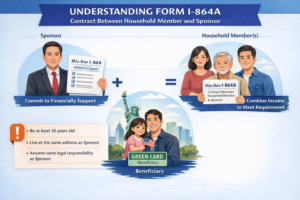On January 5, 2022, the Department of Homeland Security (“DHS”), on behalf of the United States Citizenship and Immigration Services (“USCIS”), filed a motion to dismiss its appeal of a U.S. District Court’s ruling in the case Behring Regional Center LLC v. Alejandro N. Mayorkas, et al. (“Behring v. Alejandro”).
In the case of Behring v. Alejandro, on June 22, 2021, the U.S. District Court of the Northern District of California issued an order vacating the 2019 EB-5 Immigrant Investor Program Modernization Final Rule (“Rule”), holding that it and the regulations enacted by the Rule were invalid. The most important impact for prospective EB-5 investors was that the minimum investment made in a Targeted Employment Area (“TEA”) returned to US$500,000 and investments made in non-TEAs reverted to US$1 million.
On August 23, 2021, DHS appealed the U.S. District Court’s decision in favor of Behring Regional Center. The DHS motion to dismiss ends the appeal and clears up a lingering concern whether USCIS will adjudicate I-525 Petitions filed since the Court ruling and according to the pre-November 2019 regulations.
While other concerns about the EB-5 program remain, this is good news for those who are considering moving ahead with making an investment to immigrate to the United State via the EB-5 immigrant investor visa.
If you would like to learn more about EB-5 as an option for you and your family, contact us at info@enterlinepartners.com and speak with one of our U.S. immigration lawyers in Ho Chi Minh City, Manila and Taipei.
ENTERLINE & PARTNERS CONSULTING
Ho Chi Minh City, Vietnam Office
Suite 601, 6th Floor, Saigon Tower
29 Le Duan Street
Ben Nghe Ward, District 1
Ho Chi Minh City, Vietnam
Tel: +84 933 301 488
Email: info@enterlinepartners.com
Facebook: Enterline & Partners – Dịch vụ Thị thực và Định cư Hoa Kỳ
Website: http://enterlinepartners.com
Manila, Philippines Office
Tel: +632 5310 1491
Email: info@enterlinepartners.com
Facebook: Enterline and Partners Philippines
Website: https://enterlinepartners.com/language/en/welcome/
Copyright 2021. This article is for information purposes only and does not constitute legal advice. This article may be changed with or without notice. The opinions expressed in this article are those of Enterline and Partners only.




